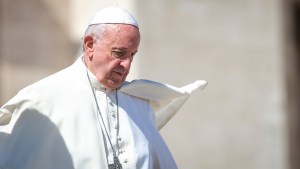Two UK bishops headed to the COP29 climate talks taking place in Azerbaijan are calling on fossil fuel companies to take on more of a share of the costs regarding the climate. Anglican Bishop Graham Usher of Norwich and Catholic Bishop John Arnold of Salford are suggesting these companies pay more in taxes to fund efforts in countries on the front lines of the climate crisis.
The two coauthored a letter to the government ahead of the COP29 meeting to urge the conference’s participants to consider their proposal. The idea of placing higher tax rates on the largest polluters is expected to be discussed at the summit as a means of bolstering the funding provided to developing countries who have experienced the most hardship due to the climate.
According to a report from ICN, the bishops posed the increasing of taxes on the companies that produce the most pollution as a matter of fairness, noting that many of these countries are “being forced to pay an impossible price for measures to protect their communities and rebuild from climate disasters.” The bishops wrote:
“The fact that those who have contributed least to causing the climate crisis face an unaffordable bill for its impacts is an injustice we cannot tolerate as a country.” The letter added, “We urge you to ensure your government plays the strongest possible role in remedying this injustice.”
The injustice, the bishops continued, is that the companies doing the most harm to the environment are profiting so much off the environmental damage. They suggested that making these companies pay more would also incentivise “the transition to renewables,”
Furthermore, the letter urged leaders attending the COP29 meeting to consider the money sourced from fossil fuel companies to be granted to the nations most vulnerable to climate change, rather than issuing the money as loans. The bishops argued that issuing aid as loans would only add “crippling debt” to the nations in the most need.
At the close of the letter, they also suggested another way to help countries most affected by climate change would be to forgive debts. They noted that in many cases, large debts force a country to choose between “paying huge interest bills to overseas lenders and paying to protect their communities from the climate crisis.”



